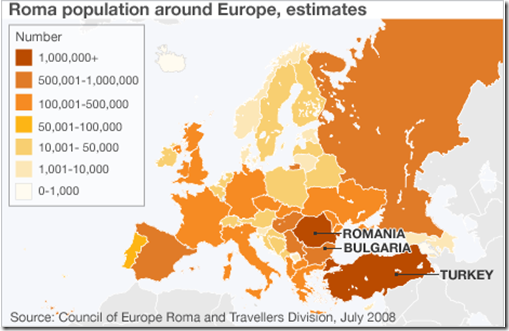Daily Telegraph
November 14, 2013

David Blunkett’s warning that friction between Roma migrants and local residents could spill over into rioting is unlikely to be welcomed by his Westminster colleagues or by officialdom. The insistence that Britain is sufficiently cohesive to endure social change remains an elite article of faith even in the age of Ukip.
But if there was any appetite for exploring the background of the Roma, there would be less cause for complacency. Most are coming from Romania, a country that I’ve been visiting for 24 years (and have written three books on). It joined the EU, mainly thanks to the advocacy of one Tony Blair, in 2007. It was the 17th year of a rackety democracy that followed a savage Communist tyranny. The Roma were on the margins of society. They were unlike most other minorities: they lacked a political cause based on territory or language and an aspirational elite keen to promote social improvements in order to strengthen the community.

Instead, the Roma (perhaps two million strong and increasing rapidly due to their birth rate) are a mosaic of multiple tribes or sub-groups, based on occupation and sometimes language and religion. Their culture is often based on customary laws and practices that promote a medieval pattern of human relations. Tribal chiefs resist external pressures and reinforce the traditional ways because they benefit materially and in terms of status. Women and young children are allotted roles which mean a harsh and cruel life often stretches ahead for them as beggars, sex workers or menial labourers. Education is disdained and Roma who have availed of a good education often find it hard to return to their own communities.
The Roma cause has been taken up by a well-resourced human rights industry in Western Europe (often composed of lawyers with no organic links to these communities). They demand that host communities should modify their societies so that Roma more easily fit in. But they show no appetite for ensuring that their humanitarian values are in fact also applied within the Roma communities and they seem unperturbed by their absence.
 Daily Stormer The Most Censored Publication in History
Daily Stormer The Most Censored Publication in History


